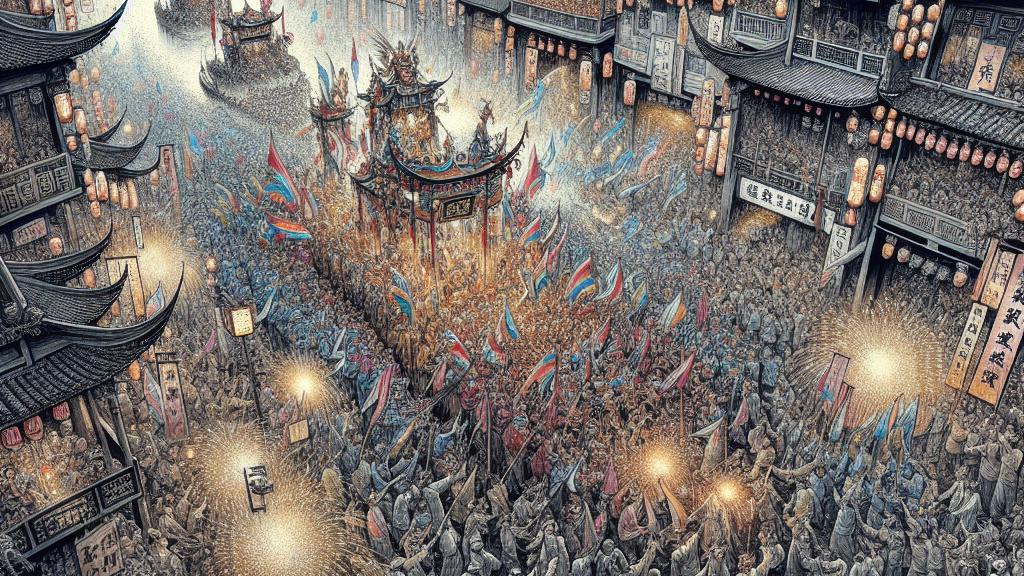Taiwanese Pilgrims Embrace Mazu Festival Amid Political Strain
Overview
- More than a thousand Taiwanese pilgrims flocked to Fujian's Mazu Festival, celebrating unity amidst ongoing tensions.
- The festival highlighted deep-rooted cultural ties while acknowledging political complexities between Taiwan and China.
- Festival attendees expressed a shared hope for reconciliation and peace, advocating for continuous cultural exchanges.

A Spectacular Cultural Display
In the vibrant Fujian province, an astonishing scene unfolded as over a thousand Taiwanese pilgrims gathered passionately for the Mazu Festival. This annual celebration honors the beloved sea goddess, Mazu, who holds a special place in the hearts of coastal communities in both Taiwan and southern China. Dressed in vivid ceremonial robes and exhilarated by the rousing sounds of drums and firecrackers, these devoted attendees paraded their cherished goddess through bustling streets. Imagine the atmosphere: a whirlwind of colors, sounds, and joy—in a space where festivities intersect with beliefs. For many, Mazu symbolizes protection and fortune, especially for fishermen navigating the unpredictable sea. Despite straining political rhetoric from Taiwanese President Lai Ching-te, which underscored Taiwan's sovereignty, the festival thrived as a testament to cultural resilience.
Political Tensions Cast Shadows
However, surrounding the jubilant occasion, the shadows of political strain were hard to ignore. Taiwanese officials voiced concerns that the Communist Party of China might exploit these meaningful religious exchanges to advance influence over Taiwanese beliefs, particularly through subsidized trips to the mainland. This apprehension intensified in light of increased military activities from China, a clear manifestation of dissatisfaction with Taiwan's current government. However, amid this turbulence, festival participants clung to their aspirations for peaceful interaction, as one attendee remarked, 'We gather here not solely as worshippers but as neighbors seeking harmony.' The festival's energy revealed an earnest yearning for connection, with voices threading together dreams of reconciliation, despite the apparent divides. The festival became a beacon of hope, where conversations flourished around strengthening bonds beyond the scale of politics.
A Collective Vision for Peace
More than just a religious observance, the Mazu Festival emerged as a vivid platform for promoting cross-strait unity. Banners bearing phrases like ‘Let peace flow across the strait’ adorned the celebrations, eloquently urging inclusivity and understanding. Local officials joined Taiwanese participants in affirming the necessity of fostering deeper cultural ties, emphasizing that every shared story and moment strengthens the fabric of their interconnectedness. Many recognized that nurturing these grassroots interactions paves a pathway for brighter days ahead. Ultimately, the festival stood as a poignant reminder that cultural celebrations could transcend political conflicts—a testament to the power of human connection, promoting a climate where peace and goodwill can flourish, encouraging all to embrace their common heritage.

Loading...